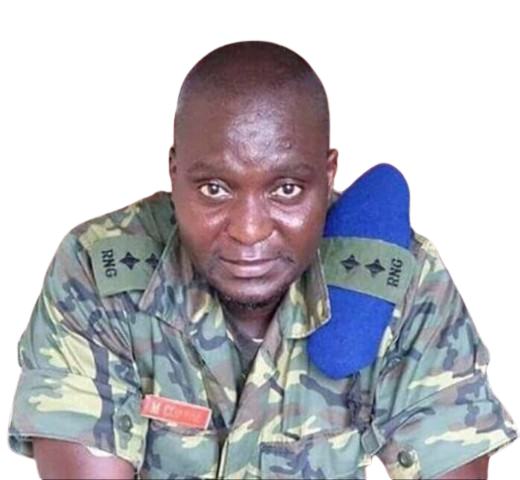Gambiaj.com – (Denver, Colorado) – Michael Sang Correa, a former member of The Gambia’s feared military unit known as the Junglers, now faces the possibility of spending the rest of his life behind bars after a U.S. federal jury on Tuesday found him guilty of six torture-related charges.
The charges stem from Correa’s role in the brutal crackdown on alleged coup plotters in 2006, when he was part of the elite squad that reported directly to former Gambian dictator Yahya Jammeh. The unit, described by survivors as operating with near-total impunity, allegedly carried out extrajudicial detentions, beatings, and torture at the direction of the regime.
Each of the six counts carries a maximum penalty of 20 years in prison, meaning Correa could face up to 120 years when sentenced. His sentencing date has not yet been announced.
Correa’s conviction marks only the third time a person has been tried under a U.S. federal law that allows prosecution for acts of torture committed abroad. The law, rarely invoked, was also used to convict Chuckie Taylor, the son of former Liberian President Charles Taylor, in 2008, and Ross Roggio, a Pennsylvania man convicted in 2023 for torturing a worker in Iraq.
Survivor Testimonies Underscore Gravity of Crimes
During the trial, held in a federal court in Denver, four living survivors traveled to the United States to provide harrowing testimonies of the torture they endured nearly two decades ago.
Pharing Sanyang, a former commander of Gambia’s presidential guard, showed jurors the scars from beatings with banana branches and recounted multiple surgeries to remove sand that had been forced into his eyes.
Another survivor, U.S. Navy veteran Tamsir Jasseh, who had returned to The Gambia to help reform the police force, described how Correa suffocated him by tying a plastic bag over his head until he was forced to bite through the material to breathe. Jasseh was later convicted of treason in The Gambia and sentenced to 20 years of hard labor before being released in 2012 after appeals from U.S. civil rights leader Jesse Jackson.
Prosecutors described the methods of torture employed by Correa as savage and deliberate. Victims were electrocuted, had molten plastic poured on their legs, and endured prolonged beatings. One man was stuffed into a bag, hoisted into the air, and then violently dropped, according to Justice Department attorney Marie Zisa.
“The victims have not forgotten his cruelty,” Zisa said in her closing argument, emphasizing that Correa’s actions were choices — not inevitabilities.
Defense Argues Coercion, But Jury Not Persuaded
Correa’s defense attorney, Jared Westbroek, argued that his client acted under duress, suggesting that life under Jammeh’s authoritarian rule left little room for dissent.
“Following an order is not the same as making an agreement,” Westbroek told the jury. “It’s difficult for those who have lived in a free and blessed country like the U.S. to understand the fear and lack of choice people like Correa faced.”
Prosecutors acknowledged the environment of fear within the Junglers but noted that some members of the unit chose not to participate in torture.
“The defendant is on trial today because of the choices he made,” Zisa countered.
A Broader Reckoning with Jammeh’s Legacy
The trial brought renewed attention to the crimes committed during Jammeh’s 22-year rule, which ended in 2017 after he refused to accept electoral defeat and was forced into exile in Equatorial Guinea.
Maggie Dwyer, a University of Edinburgh scholar who testified for the prosecution, contextualized the events by discussing Jammeh’s rise to power and his deep distrust of the military. Jammeh’s repeated crackdowns followed three coup attempts, including the 2006 plot that triggered the torture for which Correa was convicted.
Several countries have pursued justice for Jammeh-era crimes. In 2023, a German court convicted a former Jungler for murder and crimes against humanity. A Swiss court also sentenced Jammeh’s former interior minister to 20 years in prison for similar abuses.
Closing a Chapter, Seeking Justice
While Correa’s conviction may never undo the physical and psychological scars of his victims, human rights advocates say the verdict is a step toward accountability.
“This case sends a clear message that there are consequences for torture, no matter where it happens,” said a representative from Human Rights Watch, which has followed the case closely.
For the victims who bravely testified, justice may finally feel within reach.
Correa, who has been in U.S. custody since his indictment in 2020, now awaits sentencing in what could be a landmark conclusion to one of the most significant prosecutions of post-Jammeh atrocities to date.










